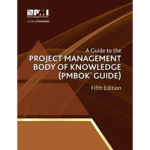
If your scope is pointed the wrong way, you're not going to hit the target! In fact, ineffective project control is one of the biggest sources of project distress. For this reason, one of the most important aspects of a project manager's job is controlling the boundaries of the project, that is, the tasks that are and aren't part of the project. If you want to have … [Read more...]













